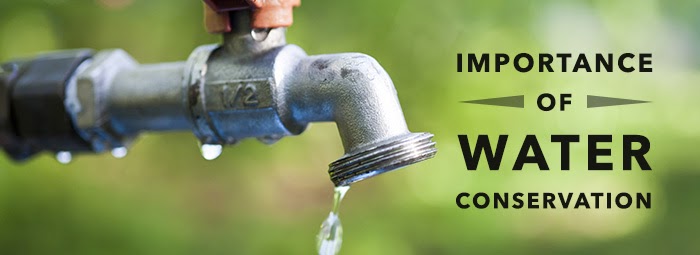NEWS
Why Is Water Conservation Important?

There are billions of people worldwide who don’t have access to clean water. This has severe repercussions for humans, animals, and the environment. It is expensive to turn non-drinkable water into drinkable water. Saving water reduces this burden and makes clean drinking water available to everyone.
It Saves Money
Water conservation is a great way to reduce your household’s water bills. You can save a lot of money by fixing leaks, taking shorter showers, and using low-flow toilets!
Besides saving money, water conservation also helps to preserve aquatic life. It reduces pollution in rivers and lakes, so more fish and other species can survive.
Water is a vital resource for humans and other organisms. It is necessary for our survival and growth. However, it is also a limited resource. Several areas face droughts and shortages of clean water. Acting to conserve water helps prevent these shortages and ensures that everybody can access clean water. It will also reduce greenhouse gas emissions and slow down climate change.
It Saves Animals
71% of the planet is covered in water, but only a fraction is fresh and usable. Saving water helps ensure we have enough to drink and survive.
Water conservation also protects wildlife. Many species rely on freshwater sources for survival. When water consumption patterns become unsustainable, it disrupts the balance of nature and pushes animals to the brink of extinction.
Conserving water can help to keep wetlands and other natural ecosystems thriving and provide essential habitat for endangered species. It can also decrease the amount of pollution in water sources. For example, reducing water usage helps reduce runoff from agricultural fields that pollute water with nitrogen-rich fertilizers that deprive aquatic ecosystems of oxygen and suffocate marine life. Water conservation can also prevent sewage waste from entering freshwater sources.
It Saves the Environment
Building your dream pool doesn’t have to mean compromising on environmental responsibility. Embrace the concept of sustainable swimming by incorporating water-saving measures right from the start of your pond construction project. Opt for a smaller pool size to minimize water usage and choose drought-resistant landscaping around your pool to eliminate unnecessary irrigation. Consider rainwater harvesting systems to collect and utilize precious rainwater for pool maintenance or irrigation, reducing your reliance on municipal water supplies. Explore advanced filtration systems that offer superior water quality while using less water for backwashing and cleaning. Remember, every step towards water conservation adds up, making your pool an emblem of both enjoyment and environmental awareness. By prioritizing sustainable swimming, you’re not just creating a backyard oasis, and you’re making a conscious choice for a healthier planet and a brighter future for all.
It Saves Firefighters
Firefighters use large quantities of water to do their job. They are trained to use only as much water as necessary when fighting wildland or structural fires, but conserving water at the station is also important.
It is a tricky balancing act to ensure firefighters have enough water to fight fires and other responsibilities, like washing their cars. When they encounter a brush fire rolling toward two houses, they have to make a lightning-fast decision about how much of their water resources to expend.
Many companies assume that going green hurts profitability, but they should be aware that intentionally saving water increases profits over the long term. Besides reducing costs, it reduces pollutants from discharged wastewater and lowers thermal energy expenditure. Moreover, an environmentally conscious company will be seen as more customer-centric.
It Saves Machines
Because fresh water is a limited resource, saving it will help protect our health and ensure access in the future. In addition, it reduces the amount of energy needed to process the water, which helps prevent pollution and climate change.
Water conservation also saves us money by reducing the cost of heating, cooling, and sewage treatment. It also helps prevent power outages caused by droughts, which is why water conservation should be a top priority.
The importance of water conservation cannot be overstated. Without it, our world would be a much different place. The sooner we understand this, the better for our future. Water conservation is integral to our daily lives, and we should all work together to preserve it.
Harper Harrison is a reporter for The Hear UP. Harper got an internship at the NPR and worked as a reporter and producer. harper has also worked as a reporter for the Medium. Harper covers health and science for The Hear UP.










